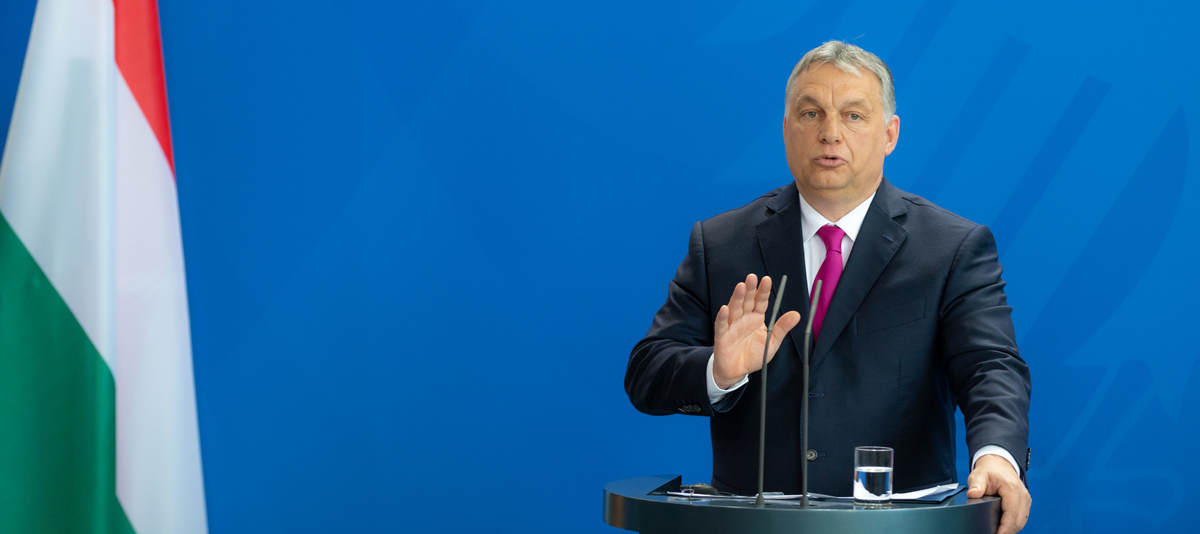The International Bar Association’s Human Rights Institute (IBAHRI) is concerned by the Hungarian government’s move to extend the state of emergency indefinitely, under the cover of the Covid-19 pandemic. This open-ended state of emergency would provide an unrestricted mandate to the government.
IBA President, Horacio Bernardes Neto commented: ‘Such a move, which is inconsistent with Hungary’s constitutional requirements, would further weaken the system of checks and balances under democratic norms and erode the rule of law in the country. The Covid-19 pandemic is a global health crisis requiring urgent domestic and international co-operation, but it must not be used as a veil to undermine basic human rights and democratic values.’
On 20 March 2020, the Hungarian government introduced a bill in Parliament that aims to extend the state of emergency and consequently authorise Prime Minister Viktor Orbán (pictured) to rule by decree, without a clear cut-off date. The impending legislation makes it possible to imprison anyone for up to eight years for interfering with the operation of a quarantine or isolation order, and introduces prison sentences of up to five years for those who are deemed to have spread false information which has hindered authority effort. The Hungarian parliament is expected to vote on the bill this week.

IBAHRI Co-Chair and immediate past Secretary General of the Swedish Bar Association, Anne Ramberg Dr jur hc, commented: ‘This bill can allow for an abuse of power, and is seen as an attempt to silence those who may criticise the Hungarian government’s coronavirus crisis management efforts. In the past, independent journalists in Hungary have often been accused of spreading false information and they will become greater targets under this bill. Parts of Europe, including Hungary, are already retreating from democratic values. Providing greater power to one person without a definite end date will further create a less free Europe and less free world. We must be vigilant and not allow that to happen under the guise of the current pandemic.’
The IBAHRI urges the Hungarian parliament not to pass this emergency bill which remains in clear contravention of international human rights standards, including Article 51 of the Siracusa Principles, which states: ‘The severity, duration and geographic scope of any derogation measure shall be such only as are strictly necessary to deal with the threat to the life of the nation and are proportionate to its nature and extent.’
In addition, the IBAHRI reminds Hungary’s government of its obligations to take steps to prevent threats to public health and to provide medical care to those who need it without exclusion, as per Article 12 of the International Covenant on Economic, Social and Cultural Rights, which states: ‘States Parties to the present Covenant recognise the right of everyone to the enjoyment of the highest attainable standard of physical and mental health.’
IBAHRI Director, Baroness Helena Kennedy QC, commented: ‘There is a well-grounded fear that as governments like Hungary adopt unrestricted emergency measures to manage the crisis, many will be loath to relinquish these new powers when the crisis is over. The open-ended emergency status provides Mr Orbán with just that opportunity. Claiming the “benefits” of decisive, authoritarian-style rule does not solve the crisis, but rather creates a much bigger one.’